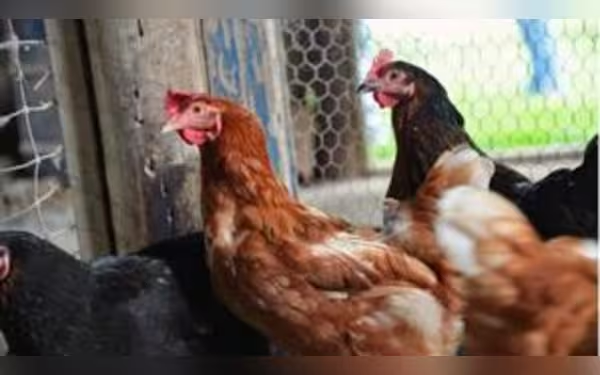Thursday, November 7, 2024 05:37 AM
Japan's First Bird Flu Outbreak This Season
- First bird flu outbreak confirmed in Hokkaido.
- 19,000 chickens culled to contain the virus.
- Transport restrictions imposed on poultry products.
 Image Credits: menafn
Image Credits: menafnJapan reports its first bird flu outbreak of the season in Hokkaido, leading to culling of chickens and transport restrictions.
Japan has recently reported its first bird flu outbreak of the season, raising concerns among poultry farmers and consumers alike. The outbreak was confirmed in Hokkaido, where a highly pathogenic strain of avian influenza was detected in chickens at a local poultry farm. This alarming situation arose after several chickens were found dead, prompting immediate action from local authorities.
In response to the outbreak, Hokkaido's officials have initiated the culling of approximately 19,000 chickens at the affected farm. This preventive measure is crucial to contain the spread of the virus and is expected to be completed by Friday. To further safeguard public health, movement restrictions have been imposed. These restrictions include a ban on the transport of chickens and eggs within a 3-kilometre radius of the farm, as well as prohibiting the transport of poultry products outside a 10-kilometre radius.
The Hokkaido government has emphasized the importance of strict enforcement of these containment measures. They have assured the public that poultry products currently available in the market are safe for consumption, alleviating some concerns among consumers. In addition, the Japanese government has taken proactive steps by establishing an information liaison office at the Prime Minister's Crisis Management Center. This office will coordinate efforts with local authorities to collect data and monitor the situation closely.
Bird flu outbreaks can have significant implications for both the poultry industry and public health. It is essential for farmers to remain vigilant and adhere to biosecurity measures to prevent the spread of the virus. Consumers, on the other hand, should stay informed and trust the assurances provided by health authorities regarding the safety of poultry products. As the situation develops, it is crucial for everyone to remain cautious and informed, ensuring that both public health and the poultry industry are protected.













